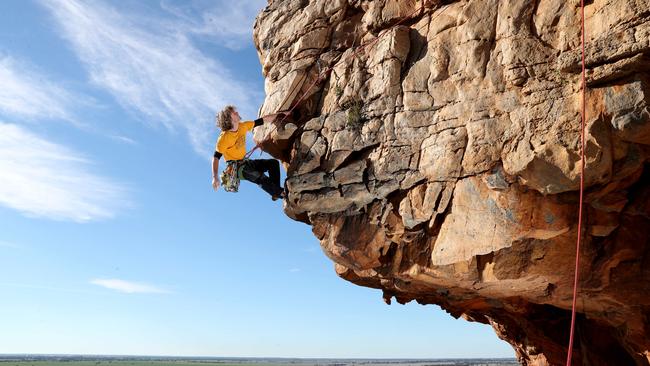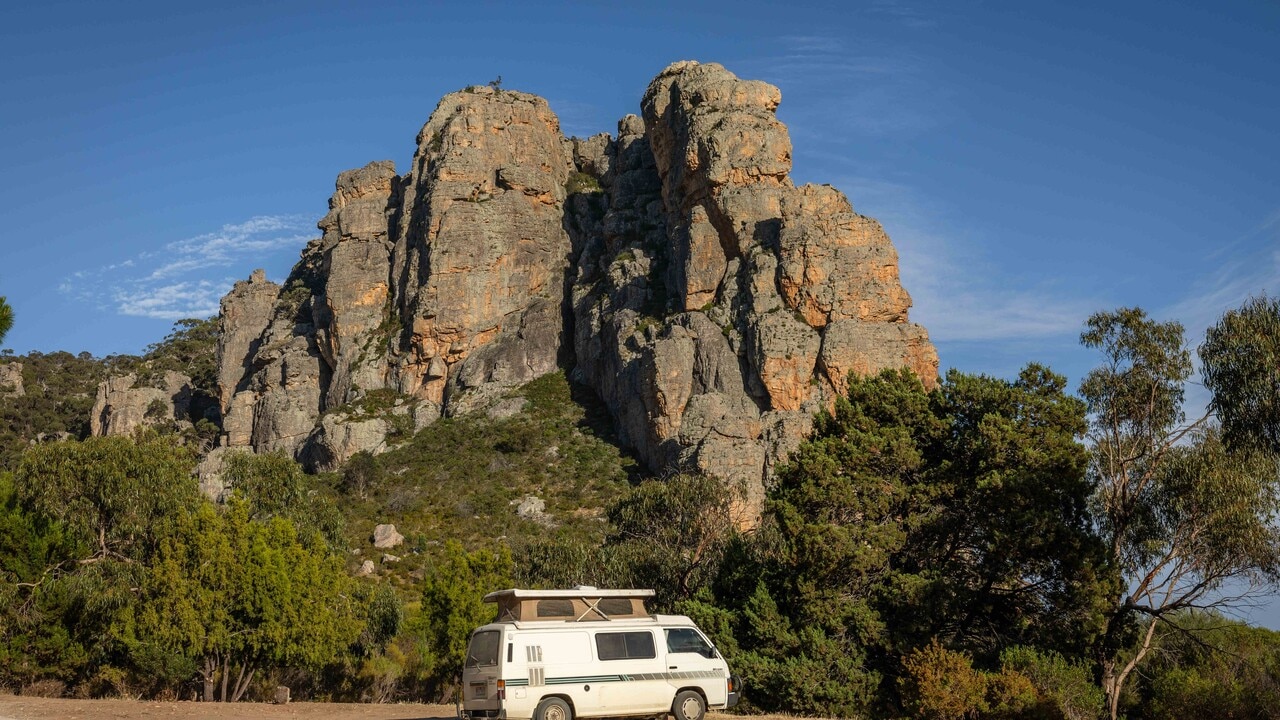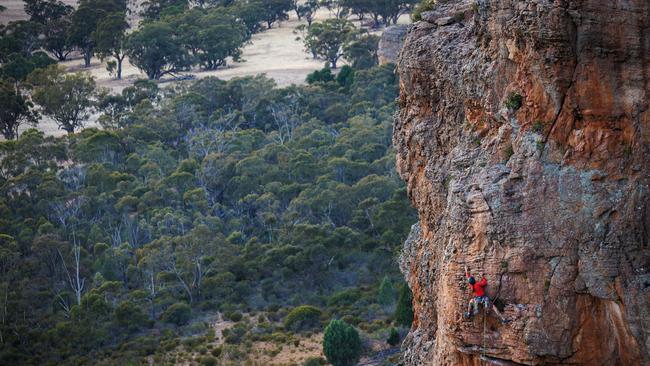Parks Victoria ‘in breach’ of its own mandated rules over Arapiles heritage climbing fiasco: critics
Parks Victoria has failed to meet its mandated guidelines over the Mt Arapiles rock climbing bans, according to critics.

Parks Victoria is in breach of its mandated obligations after failing to fully consult with the community and other organisations over the Mt Arapiles changes, according to critics of the handling of the rock climbing bans.
The gazetted obligations relating to Parks Victoria show the organisation must place the community at the centre of park planning and management, and effective communication with community stakeholders is critical to policy, management and operations.
Parks Victoria’s statement of obligations was amended in late 2021 and gazetted that year, detailing how the community was to be placed at the centre of park planning and management.
However, key stakeholders – including many in the small west Victorian town of Natimuk – have accused Parks Victoria of failing to consult fully before announcing sweeping rock climbing bans at the destination, about 340km northwest of Melbourne.
Since Parks Victoria chief executive Matthew Jackson left the job last year amid an outcry over the organisation’s behaviour, interim CEO Graeme “Gus” Dear has attempted to consult with stakeholders, as required under its formal statement of obligations.

However, there is deep anger over the way Parks Victoria cut out key people before announcing the bans in November, which will gut climbing at Arapiles.
Climbing Victoria spokesman Mike Rockell said there was no doubt that Parks Victoria under the previous leadership had failed to consult fully with stakeholders.
“Climbing Victoria was blindsided,’’ he said. “I think everyone was. And the thing is we had been meeting regularly with Parks Victoria and we would say what is happening at Mt Arapiles.’’
However, no information was forthcoming and the bans were then imposed, affecting up to 60 per cent of all climbing routes.
The traditional owners, represented by the Barengi Gadjin Land Council, also are believed to be out of sorts over Parks Victoria’s handling of the issue, but have not responded to The Australian.
Parks Victoria was also approached for comment.
Australian Climbing Association Victoria treasurer Mike Tomkins said last year’s announcement on Mt Arapiles, where cultural heritage and environmental concerns were raised by Parks Victoria as reasons for imposing the bans, had been a surprise to both Climbing Victoria and the Gariwerd Wimmera Reconciliation Network.
GWRN has conceded it did not advocate on behalf of climbers; rather, it merely helped the BGLC by explaining the basics of where people had climbed.
GWRN and Climbing Victoria had previously been involved in discussions with Parks Victoria.
“They (Parks Victoria) blindsided everyone. That was an eye opener for many people,’’ Mr Tomkins said.

The state government is close to finalising its new position on the bans, which threaten to gut Natimuk and undermine Labor’s reputation on access to public spaces. The government could be forced to amend cultural heritage legislation to address the issue.
Senior government figures are believed to be supportive of the climbers and the town residents but have struggled to engage BGLC in discussions.
There are concerns the issue could bleed into the Victorian treaty negotiations.
The issue of rock climbing in Victoria has become a years-long saga that has undermined the government since 2019.
Mr Jackson was being paid more than $500,000 a year, slightly more than the Premier, but fell out with the government amid the wrangling over rock climbing at Arapiles and the way the bans were also imposed at the nearby Grampians National Park.
The 2021 Parks Victoria obligations clearly state the importance of consultation with communities and affected groups.
“The community should be placed at the centre of park planning and management,’’ the statement of obligations reads.
“Effective communication with the community and key stakeholders is critical to the successful development and delivery of major policies, management outcomes, initiatives and operations.’’




To join the conversation, please log in. Don't have an account? Register
Join the conversation, you are commenting as Logout